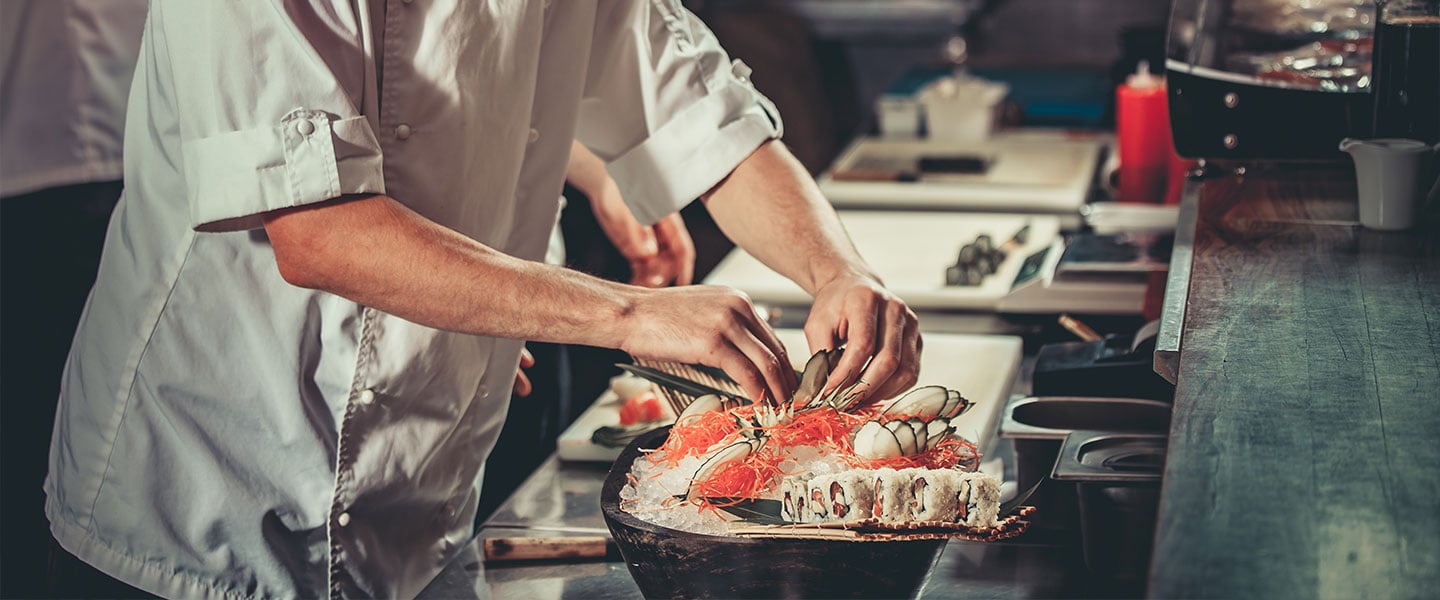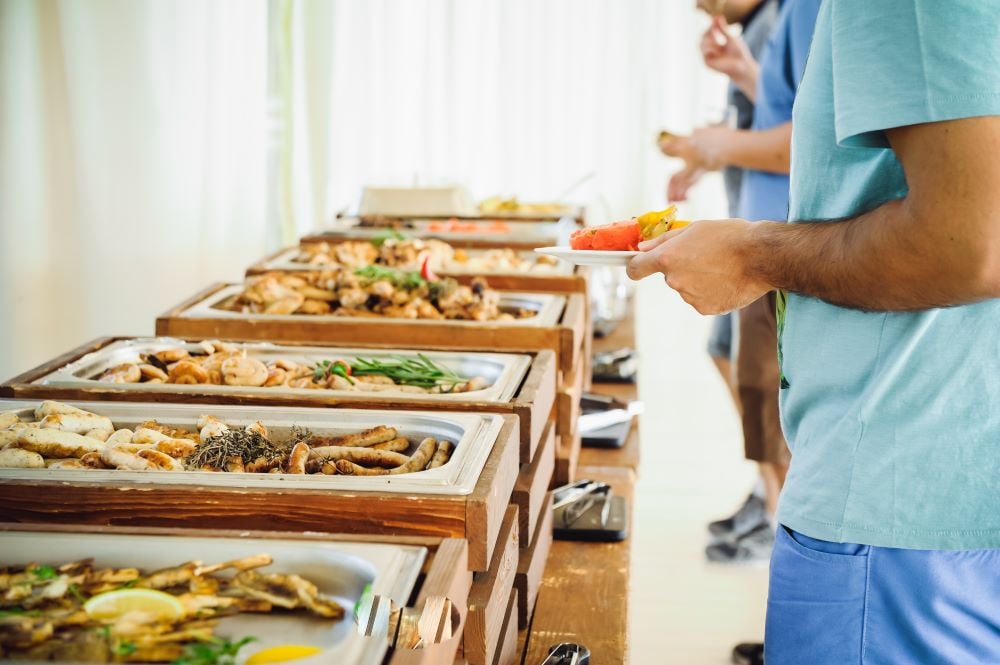
Food and beverage M&A review: Spring 2025
What does the future hold for food and beverage businesses?
A strong start for the sector
Following a string of strategic deal completions, food and beverage M&A was positive, with volumes matching the 2024 quarterly average. Nicola Sartori explains the key trends shaping the market.
By Nicola Sartori

Food and beverage’s (F&B) healthy Q1 M&A activity was driven by ongoing private equity (PE) interest and strategic acquisitions from trade buyers aiming to expand their brand portfolios and strengthen supply-chain capabilities.
The geopolitical and economic uncertainties we saw in April haven’t impacted volume yet, however there may be a more tangible effect to come later in the year.
Quarterly food and beverage deal volume

Source: BvD Zephyr, Mergermarket, and Grant Thornton UK proprietary data
Deal volumes (40) matched the previous quarter and was slightly ahead of the 37 announced in Q1 2024. This performance is stronger than the numbers indicate, because speculation around capital gains tax increases in the October Budget caused sellers to pull some deals forward into Q3 and Q4. Without this impact, it’s likely that Q1 2025 would have seen an even higher volume.
This data shows that there's a consistent level of deal activity in the F&B sector, despite challenges in the wider M&A market. You can hear more about this as I talk through the detail here.
Key deals
Carlsberg Britvic: Danish brewer builds on UK position
Perhaps the most significant completion this quarter was Carlsberg's £3.3 billion acquisition of Britvic, originally announced in summer 2024. It adds Britvic's extensive soft drinks portfolio, on top of a previous acquisition of Marston Breweries, to Carlsberg’s UK operations. This deal demonstrates: the strategic importance of the UK F&B market now the UK has become one of Carlsberg’s largest markets; the ongoing trend of consolidation in the sector to expand product ranges and generate economies of scale, and Carlsberg’s intention to offer alcohol alternatives.
Bakkavor Group plc: potential combination with Greencore plc
Greencore, a supplier of white-label ready meals to major supermarkets, is in conversation with one of its competitors, Bakkavor, about a cash-and-share offer for the company. The initial proposal was rebuffed, but a higher offer brought the target back to the table. Greencore’s latest proposal values it at c.£1.2 billion. The acquisition would create a food business with c.£4 billion revenue, and analysts have estimated that synergies in the region of £100 million could be achieved. If it does go ahead, it’s likely that the CMA will review it.
UK activity strongest since 2017
Cross border analysis of deals (quarterly)

Q1 2025 marked the strongest quarter for UK-to-UK domestic M&A since we started tracking it in Q1 2017.[1] This rise has been driven by PE activity, with funds and family offices still having significant capital to deploy, and PE-backed trade deals.There were 11 direct investments from PE, up from nine quarter-on-quarter (QoQ) and 10 in Q1 2024.
- Two came from Maven’s regional fund from the British Business Bank as minority investments into Tiba Tempeh and Wilsons Pet Food
- Yeo ventures alongside Mercia and others added to their portfolios with minority investments in Everyday Adventures, a natural energy snack brand
- Puma Private Equity invested in healthier natural snacking brand Love Corn
- UK soft drink company and CBD brand,Trip, attracted investment from London-based Equity Studio
PE-backed trade deals are a long term trend in the fragmented UK F&B sector. Examples this quarter were:
- The Compleat Food Group Ltd, a PE-backed business, acquired The Real Yorkshire Pudding Company Ltd, the UK-based frozen foods manufacturer
- Bramble Foods Ltd, which is minority-backed by LDC, announced a second investment in January 2025 – acquiring UK-based Whitakers Chocolates Ltd
Strategic UK trade deals
A number of strategic UK-centered trade deals this quarter have enabled acquirers to strengthen and diversify their brand portfolios, expand into new product categories, and enhance supply-chain capabilities.
Yeo Valley acquires The Collective
In March 2025, Yeo Valley, the UK’s largest organic dairy brand, acquired The Collective, a premium yogurt company. The Collective had previously contracted Yeo Valley for around 80% of its production. This strategic acquisition leverages The Collective’s strong presence in premium yogurt to strengthen Yeo Valley’s position in the competitive dairy market.
Powder Monkey Group expands its portfolio
Powder Monkey Group, a UK-based craft brewery, continued its expansion with the acquisition of Goddard’s Brewery (the Isle of Wight’s oldest brewery) and Empress Ales in early 2025. These deals strengthen Powder Monkey’s beer portfolio and brewing capacity in the UK. They’re positive case studies in a market with rising administrations.
Cake Box Plc acquires Ambala Foods
The egg-free cake franchise announced completion of this deal to expand its revenue channels on 12 March. Ambala foods produces a range of Asian desserts in its own production facility and operates 22 retail sites. This was supported by AIM-listed Cake Box raising funding through an equity issue.
OSI Food Solutions acquires protein supplier, Karnova Ltd
OSI Food Solutions UK Ltd, a subsidiary of OSI Group, a privately-owned multinational food processing company headquartered in the USA, acquired Karnova Ltd (also known as Karnova Food Group), a UK-based supplier of prepared meat and poultry. The transaction allowed an investor-exit for Endless LLP via Endless Fund V for an undisclosed sum.
What should F&B businesses focus on amid current challenges?
Understanding the entire supply chain, the accessibility and cost of labour, and having a robust business plan are essential for supporting businesses now and protecting them against future challenges.
In this video I discuss the impacts and focuses for businesses operating in the sector with Hemal Shah, one of our transaction advisory partners.
Sub-sector spotlights
Alcoholic drinks made up more than 25% of F&B deals in Q1, with pet foods and confectionary also performing strongly.
| Sub-sector | Number of deals |
|---|---|
|
Alcoholic drinks |
12 |
|
Functional |
6 |
|
Confectionery |
5 |
|
Pet food |
5 |
|
Meat, fish and poultry |
3 |
|
Bakery |
2 |
|
Dairy |
2 |
|
Soft drinks |
2 |
|
Deli |
1 |
|
Frozen foods |
1 |
|
Fruit and veg |
1 |
|
Grand Total |
40 |
Beers and ales accounted for half of the alcoholic drinks deals. As well as Powder Monkey Group’s acquisition, Keystone Brewing Group, formerly Breal Group, acquired North Brewing Company Ltd and Fourpure, securing their futures.
There were only four minority investments in spirits. A significant non-deal development in the sector was Diageo’s decision to withdraw from its Distill Ventures accelerator programme, as part of the company’s strategic shift to concentrate on core activities and drive long term growth. Founded in 2013, Distill Ventures has supported several high-profile brands, including Seedlip, Tipplesworth, and Mr Black, and has invested over £235 million in more than 35 businesses. This move reflects F&B’s prioritisation of divestment from non-core assets to streamline operations and focus on profitability.
Pet sector performs strongly
The pet sector remains resilient, with key deals indicating strong consumer confidence and a focus on health-oriented products:
- Pooch & Mutt’s acquisition of BIOME9, a dog gut-health diagnostic business, was its first deal under the ownership of Vafo Group and showcases the ongoing trend of personalisation in the pet food sector
- Alpha Pet Ventures acquired JR Pet Products, a Wales-based producer of natural and health–outcome-orientated dog treats
Both deals reflect ongoing consumer interest in natural pet products with health benefits.
What could happen next?
The ongoing uncertainty around tariffs means that the F&B sector will need to adapt to the increased costs of importing packaging, ingredients, and machinery. Market volatility as a result of policy uncertainty has also impacted appetite for IPOs, particularly in the US.
The ongoing volatility in a number of key-commodity prices has been a significant trend in the sector, particularly since Russia’s invasion of Ukraine. The volatility has increased strain on supply chains, with climate risk also a key factor for some of them, for example coffee and cocoa. This pressure may increase M&A activity, as companies seek to reduce their reliance on vulnerable ingredients and explore alternatives.
In Q1 ongoing interest from PE, and their portfolio companies, and strategic acquisitions, demonstrate that strong brands and operational synergies are driving deals. Continued focus on core operations, bolstering supply-chain resilience, and future-proofing through a focus on health and wellness are likely to be priorities for the remainder of the year.
For more insight and guidance, contact Nicola Sartori.
[1] Domestic deals refer exclusively to transactions between UK-based buyers and sellers, while overseas deals include both inbound (international buyers acquiring UK businesses) and outbound (UK buyers acquiring international businesses).